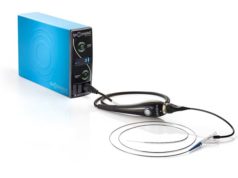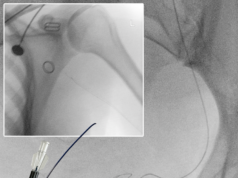William Alfred Cook, founder of the Cook Group global network of companies and a pioneer in the development of life-saving minimally invasive medical device technology, died on 15 April 2011 åÊin his Bloomington home of congestive heart failure. He was 80. Survivors include his wife Gayle Karch Cook, son Carl and daughter-in-law Marcy, and a granddaughter, Eleanor.
Started in the spare bedroom of his Bloomington apartment in 1963, the Cook family of businesses has grown into a global entity of 42 companies employing more than 10,000 people. The firms manufacture cardiovascular diagnostic and interventional products, antimicrobial catheters, vascular filters, bioengineered tissue grafts, extruded and injection-molded plastics, precision stainless steel tubing, urological equipment, OB/GYN devices and endoscopic instruments. In addition, other Cook Group corporations are involved in real estate, travel services, and aircraft service and maintenance.
åÊ
Company officials said that the business will continue as a privately held corporation with global headquarters in Bloomington, USA. Carl Cook, 49, has been named chief executive officer of Cook Group, with Steve Ferguson continuing as chairman and Kem Hawkins continuing as Cook Group president. 2010 annual global revenue for the company was approximately US$2 billion.
åÊ
‰ÛÏBill‰Ûªs many contributions to the medical industry are unprecedented, and his many contributions to the community and to charitable organisations are extraordinary,‰Û said Steve Ferguson, chairman of Cook Group.
åÊ
Cook was born 27 Jan 1931, in Mattoon, USA and grew up in nearby Canton. He earned a bachelor‰Ûªs degree in biology from Northwestern University in 1953 and pursued post-graduate work in physics at Trinity University in San Antonio, Texas.
åÊ
In 1963, he founded the Cook company in Bloomington on US$1,500 invested capital, with Bill and his wife Gayle as its only employees. The company‰Ûªs first products were a set of percutaneous wire guides, catheters and needles that helped popularise minimally invasive medical procedures that put an end to exploratory surgery. Cook innovations included firsts in coronary and peripheral stenting, endovascular treatment of aortic aneurysms, difficult airway management and other medical disciplines that helped shape modern medicine worldwide.
åÊ
Always believing he had a responsibility to use his wealth for good causes, Cook was instrumental in the restoration and reuse of many historic buildings in southern Indiana, including over forty properties on the National Register of Historic Places. He was founder of the Monroe County YMCA and sponsor of the Star of Indiana Drum and Bugle Corps, a traveling and performing group of young people.
åÊ











